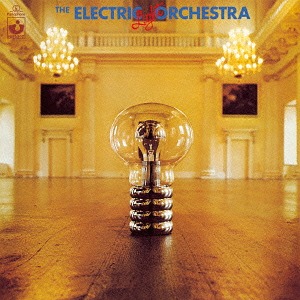 Album title: The electric Light Orchestra
Artist:
Album title: The electric Light Orchestra
Artist: Electric Light Orchestra (ELO)
Nationality: English
Label: Jet
Chronology: Debut
Grade: B
PA Rating: 3.63
The Trollheart Factor: 10
Introduction: Hard to see how this led to the classic albums we came to know and love. It’s very much all over the place, but that could be due to the two guys wanting to go in totally different directions. Hardly an auspicious beginning though; even if the seeds were there, they were buried pretty deeply.
Tracklisting: 10528 Overture/ Look at Me Now/ Nellie Takes Her bow/ The Battle of Marston Moor (July 2nd 1644)/ First Movement (Jumping Biz)/ Mister Radio/ Manhattan Rumble (49th Street Massacre)/ Queen of the Hours/ Whisper in the Night
Comments: From the first, it’s always been a point of contention as to whether ELO are considered progressive rock or not. Some of their albums undoubtedly reflect prog credentials, such as 1974’s
El Dorado and to some extent
Out of the Blue from 1978; others clearly do not. This being their first album I find to be mostly a mix of basic rock-and-roll and some elements of perhaps an ELP-style prog, mixing in classical music ideas into rock and pop, and it’s hard to make a real determination. The opener, “10538 Overture” has enough classical/strings in it to give an idea of prog, sure, and with its look forward to the (very far) future might qualify, or that might work against it, but it’s still a good song on what has to be admitted is mostly a pretty mediocre album, which makes it sometimes hard to understand how ELO managed to attract the kind of attention from a record company that they did, allowing them to get their feet on the road to stardom. That fame would not come easily though, or quickly, as we’ll see.
As for this, well “Look at Me Now” is pure Beatles with a sharp, sort of scraping guitar and maybe cello, not sure, but it’s kind of raw compared to the opener, and you can certainly mark the difference between the vocals of Jeff Lynne (on the opener) and Roy Wood here. Then “Nellie Takes Her Bow” is a piano-driven ballad with Lynne back behind the mike, though there’s a really incongruous jam after the first two or three minutes that for me makes no sense at all and really goes nowhere. Typical of the very disjointed nature of this debut album, as if Wood and Lynne, the two co-founders, were constantly pulling in opposite directions. This tug-of-war for control of the band would result in the former leaving before the next album was released and ELO would forever after be Jeff Lynne’s band.
I mean, they even throw in a bit of “God Rest Ye Merry Gentlemen”! What’s that all about? Mind you, poor as this song is, it’s a classic compared to “The Battle of Marston Moor”, which is, well, just a mess. Basically it’s a crazy instrumental which uses I think mostly cello and is quite harsh, with some speech - fighting talk, as it were - at the beginning, giving you the idea of watching a Shakespeare play or something. Bloody awful. “First Movement (Jumping Biz)” is an actual instrumental, on guitar mostly, and borrows heavily from Mason Williams’ “Classical Gas”. It’s alright I guess, but it’s quickly forgotten as we get to “Mr. Radio”, an example of the sort of thing ELO would turn out once they jettisoned Wood (hah! Got rid of the dead Wood?) and stopped fu
cking around. It’s a lovely little semi-ballad with that aching vocal we would come to associate with Jeff Lynne on such classics as “Telephone Line”, “Don’t Walk Away” and “Turn to Stone”. Worth the price of the album alone.
We’re back to nonsense sub-Waits instrumentals with the marching “Manhattan Rumble (49th Street Massacre)” which sounds like something out of an old sixties cop show or something, I have to admit, much as I’m championing Lynne’s contributions here rather than Wood’s, his final one, “Queen of the Hours” does not impress me; I’m just bored by it. Conversely, the closer, sung and written by Wood, “Whisper in the Night” is one of my favourite early ELO ballads, and it’s a great way to close a really fairly so-so and very unbalanced album.
Favourite track(s): 10538 Overture, Mr. Radio, Whisper in the Night
Least favourite track(s): The Battle of Marston Moor
Personal Rating: 2.0
Legacy Rating: 4.0
Final Rating: 3.0






 Hybrid Mode
Hybrid Mode